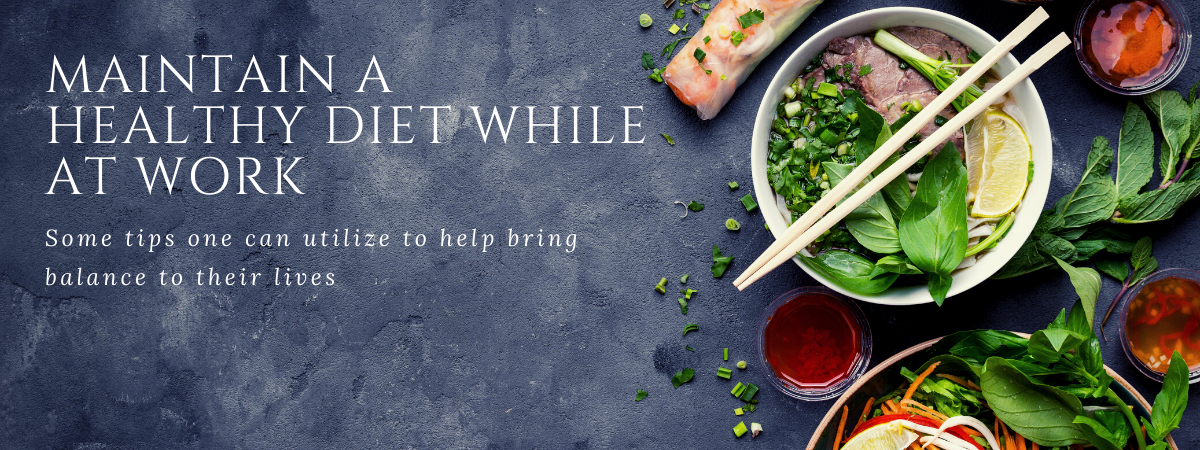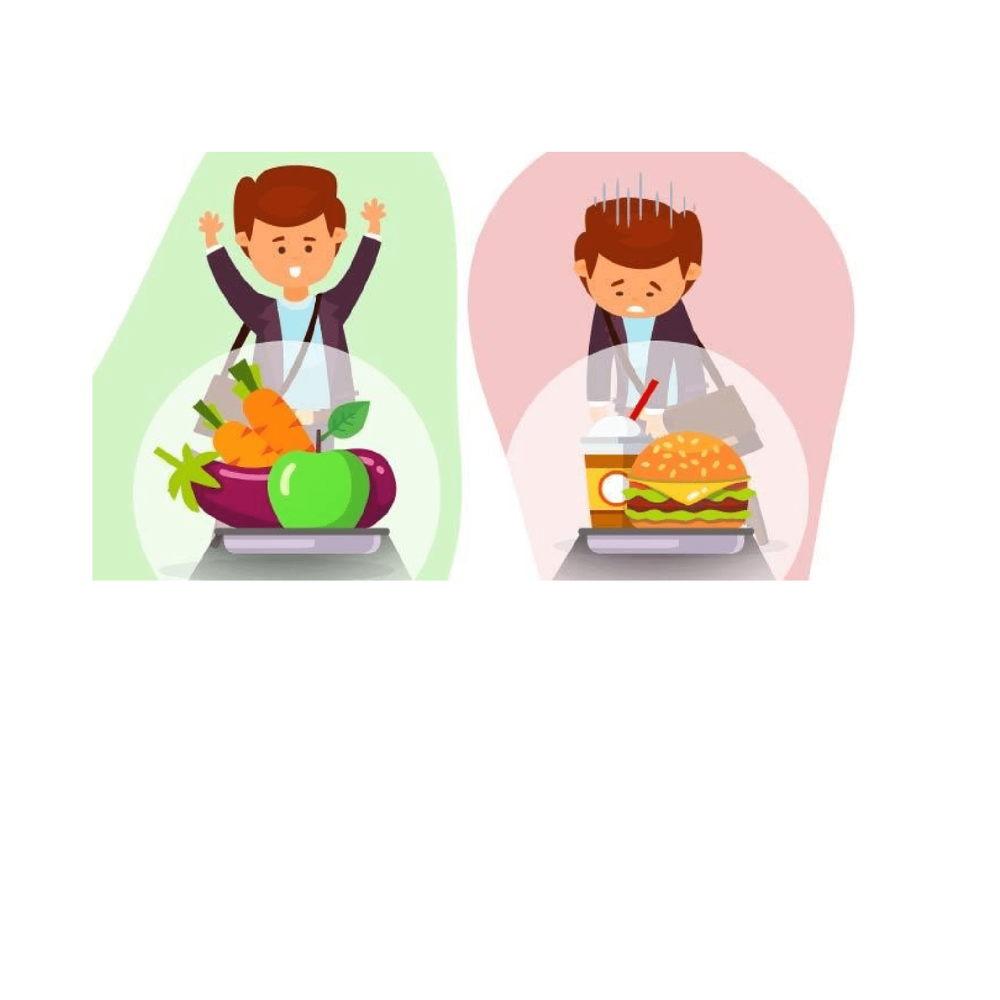Ways to Balance Work and Food
Most of us got an opportunity to slow down our lifestyle when the pandemic hit, but now the workforce seems to not have skipped a beat. While some people were able to “ease” back into our new normal, others were thrown right back into the face-paced lifestyle before the work-from-home days.
Let’s take a moment to slow down, take a deep breath, and read some tips and tricks on how to maintain balance in our daily lives:
1. Make it convenient for yourself – It is no secret that Americans love convenience, but why not make it convenient for ourselves? This can be as simple as throwing a handful of carrots and a hummus cup in sandwich baggies for a midday snack or pre-cooking rice and chicken breast on Sunday to throw together a burrito bowl for weekly dinners. Convenience doesn’t always have to mean unhealthy!
Need some inspiration? Check out this article for healthy office snacks that are easy and quick to throw together: https://www.healthline.com/nutrition/healthy-snacks-for-work
2. Don’t skip meals – You don’t have to be a breakfast person, but once you have your first meal of the day, be sure to get in a snack or a meal every 3-4 hours following. Snacks and meals more often throughout the day help to keep your blood sugar levels stable, offering more steady energy. A recent study shows a significant increase in disease risk with a high meal frequency (≥6 meals/day) as compared to a low meal frequency (1–2 meals/day). Think about a hunger scale of 1-10, where 1 is when you are so hungry that you end up reaching for anything in sight (most likely not the healthiest choice), and 10 is you are so stuffed that you couldn’t possibly eat anymore. We want to stay between 4 and 7 on a hunger scale throughout the day. This helps us avoid these energy slumps and lack of willpower to make healthy choices.
3. Avoid added sugars – Speaking of blood sugar levels, avoiding sugary drinks and snacks is crucial in avoiding crashes. While marketing tactics for energy bars contain empty promises to give you fuel, many of them contain high amounts of sugar, contributing even more to the inconsistency in energy levels throughout the day. A summary of 31 studies further proved that sugary foods and drinks do not improve mood or fatigue. In fact, consuming them can actually increase your energy slump. Skip the Cliff bars and go for a handful of nuts, apple slices, peanut butter, string cheese, or protein bars that contain single digits in sugar to avoid a sugar crash later in the day.
4. Increase water, and decrease coffee – We all wake up a little groggy in the mornings. However, many of us don’t realize that a lot of this grogginess comes from dehydration. Since coffee is a diuretic, we are dehydrating ourselves even more by reaching for coffee first thing in the morning, causing even more grogginess when the caffeine kick wears off. Try replacing 8-16 oz of water first thing in the morning, then using your cup of joe for an extra caffeine kick later in the day.
Pro tip: Keep a full water bottle next to your bed and make a goal to finish half before getting out of bed
5. Use your lunch break – While this may not be directly related to “diet”, carving out time to take a break and enjoy the food you have prepared for yourself is crucial in maintaining a balanced lifestyle. While a majority of us are given a lunch break, we chose to work through them in the hopes we can get ahead on our workload. While there may be an immediate gratification of productivity, we are putting our mental health on the back burner which can later cause burnout. To further prove the correlation between lunch breaks and mental health, a survey found that North American employees who take a lunch break every day reported higher engagement based on metrics including job satisfaction, productivity, and likelihood to recommend working there to others.4 If your lunch break is there – use it!
Support is crucial in maintaining this balance in our home and work lives. At Nutrition Healthworks, we work weekly with clients to plan out their week by planning out their grocery shopping, workouts, and meal prepping.
Grace Mammes
RD LDN


